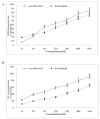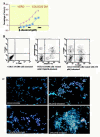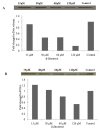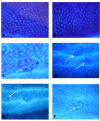Chemopreventive potential of beta-Sitosterol in experimental colon cancer model--an in vitro and In vivo study
- PMID: 20525330
- PMCID: PMC2887773
- DOI: 10.1186/1472-6882-10-24
Chemopreventive potential of beta-Sitosterol in experimental colon cancer model--an in vitro and In vivo study
Abstract
Background: Asclepias curassavica Linn. is a traditional medicinal plant used by tribal people in the western ghats, India, to treat piles, gonorrhoea, roundworm infestation and abdominal tumours. We have determined the protective effect of beta-sitosterol isolated from A. curassavica in colon cancer, using in vitro and in vivo models.
Methods: The active molecule was isolated, based upon bioassay guided fractionation, and identified as beta-sitosterol on spectral evidence. The ability to induce apoptosis was determined by its in vitro antiradical activity, cytotoxic studies using human colon adenocarcinoma and normal monkey kidney cell lines, and the expression of beta-catenin and proliferating cell nuclear antigen (PCNA) in human colon cancer cell lines (COLO 320 DM). The chemopreventive potential of beta-sitosterol in colon carcinogenesis was assessed by injecting 1,2-dimethylhydrazine (DMH, 20 mg/kg b.w.) into male Wistar rats and supplementing this with beta-sitosterol throughout the experimental period of 16 weeks at 5, 10, and 20 mg/kg b.w.
Results: beta-sitosterol induced significant dose-dependent growth inhibition of COLO 320 DM cells (IC50 266.2 microM), induced apoptosis by scavenging reactive oxygen species, and suppressed the expression of beta-catenin and PCNA antigens in human colon cancer cells. beta-sitosterol supplementation reduced the number of aberrant crypt and crypt multiplicity in DMH-initiated rats in a dose-dependent manner with no toxic effects.
Conclusion: We found doses of 10-20 mg/kg b.w. beta-sitosterol to be effective for future in vivo studies. beta-sitosterol had chemopreventive potential by virtue of its radical quenching ability in vitro, with minimal toxicity to normal cells. It also attenuated beta-catenin and PCNA expression, making it a potential anticancer drug for colon carcinogenesis.
Figures






References
-
- Awad AB, Downie AC, Fink CS. Inhibition of growth and stimulation of apoptosis by β-sitosterol treatment of MDA-MB-231 human breast cancer cells in culture. Int J Mol Med. 2000;5:541–545. - PubMed
-
- Takahashi M, Fukuda K, Sugimura T, Wakabayashi K. β-Catenin is frequently mutated and demonstrates altered cellular location in azoxymethane-induced rat colon tumors. Cancer Res. 1998;56:42–46. - PubMed
Publication types
MeSH terms
Substances
LinkOut - more resources
Full Text Sources
Other Literature Sources
Medical
Miscellaneous

